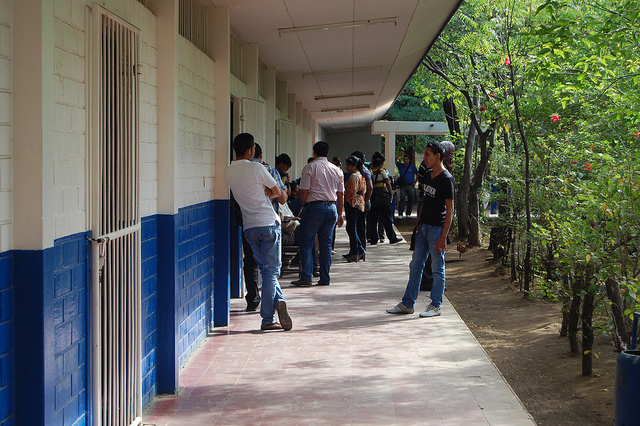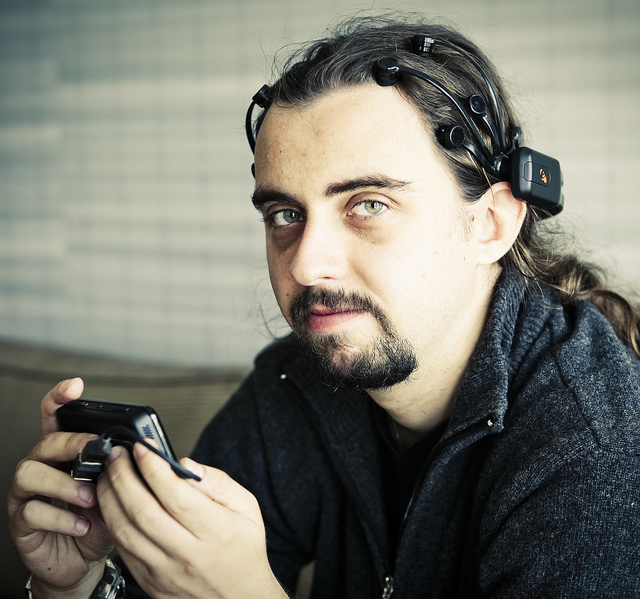TORONTO – Treating epilepsy with an affordable $300 device in Bhutan, rolling out mobile mental health clinics to the remotest areas of Uganda and even extending a single psychiatrist’s reach to an entire African island using technology.

These are only a handful of the Canadian-financed projects that are working on inventive ways to help people with mental health in the most far-flung places in the world.
Last week, Grand Challenges Canada poured $270,000 in seed money to 21 global mental health projects that show promise.
READ MORE: 5 Canadian innovations that could change the face of global health care
Grand Challenges Canada is funded by the federal government and its grant program helps pay for research in developing ways to treat diseases in the developing world. So far, it’s spent $7.7 million in funding mental health research.
If a Canadian patient is sick with depression, he or she has access to a doctor, to treatment via medication or therapy, and support along the way.
In other parts of the world, these kinds of resources aren’t accessible.
READ MORE: 6 Canadian game-changing ideas for global health care
“Now imagine that same person in the developing countries where they might be stigmatized as being possessed, locked in a room, chained to a tree. It’s very unlikely to get access with a mental health worker,” Singer said.
I’m not saying the situation in Canada is perfect but those are the dire straits of people with mental health conditions in the developing world. We’re trying to help turn that around.”
Eight of the projects that received funding come right out of Canada – including Toronto, Quebec City, Montreal, Ottawa and Vancouver.
Global News takes a look at five world projects:
A $300 device to diagnose epilepsy

Get weekly health news
Some 65 million people – or one in 100 – are affected by epilepsy worldwide. Ninety per cent of the time, the condition occurs in developing countries where it goes untreated.
This is where University of Ottawa researchers come in: they’re using their seed money for their first clinical trials of a portable electroencephalography device in hopes that it’ll become a routine tool for diagnosing epilepsy.
http://www.youtube.com/watch?v=oCdKKsTKc0I&feature=youtu.be
The new screening tool, only $300, will be used in Bhutan, a small South Asian kingdom near the eastern end of the Himalayas. In that small country of 900,000 people, there isn’t a single neurologist and only one EEG machine.
READ MORE: Inside Epilepsy
“Epilepsy is characterized by recurrent, unprovoked seizures and, in many poor countries like Bhutan, sufferers are stigmatized and ostracized — often feared by the ill-informed to transmit the illness through saliva,” said Dr. Farrah Mateen, a neurologist and faculty member of both the University of Ottawa and the Massachusetts General Hospital of Harvard Medical School.
Her device would connect 14 electrode leads on the scalp through a headphone jack of a smartphone or tablet to capture brain activity. Then the data’s sent to a smartphone for doctors to read.
Ultimately, they’re hoping the tool is a success. That way, community health care workers anywhere in the world can diagnose epilepsy and treat the condition with inexpensive drugs.

How a single psychiatrist can extend his reach across a tiny African island
We use our tablets and iPhones to text friends, play Angry Birds and surf the web. But on the island nation of Comoros, researchers hope this technology will connect a single psychiatrist with patients far away.
Nearly half of the citizens of Comoros live in poverty and on the country’s main island, there are 600 people with epilepsy and another 600 with schizophrenia.
READ MORE: Sick Kids doctors mark Global Child Health Day with new initiative
Now, researchers are hoping to offer mental health training to community-level health workers who can connect their patients with the one working psychiatrist in the country. How so? They’ll be relying on mobile phone consultations while tablets can help with weekly reporting. Mobile apps have even been deployed to help inform the public about mental health issues.
The game plan is to reduce the number of patients who go without treatment by 30 per cent in just 18 months.
Improving mental health in rural India
In some parts of India, violence has taken hold for decades. Here, Montreal researchers say they’ve documented a 30-fold increase in mental disorders.
Scientists from the Douglas Hospital Research Centre in Montreal are using cellphones, netbooks and other small media devices to help them train everyday health care workers on the ground about mental health. They’ll be focusing on psychotic, bipolar and depressive disorders, the researchers say.
READ MORE: Why you should care about changes to the DSM mental-health bible
And over the long-term, they’re reaching out to refugees who may be facing mental health trauma after they were displaced from their homes.
Addressing youth suicide in Nicaragua
Toronto’s Centre for Addiction and Mental Health is taking its funding to Nicaragua, where they hope to help people suffering from post-traumatic stress disorder, depression, anxiety and substance abuse.

The Central American country has dealt with violence, poverty and natural disasters, leaving its citizens vulnerable. It’s no surprise to the researchers that Nicaragua has the highest rates of suicide, psychiatric illness and addictions in the region. It’s especially the case for those between 15 and 24 years old.
CAMH officials say that over the course of two years, they’ll work in secondary and post-secondary schools in Leon to promote early mental illness identification, reduce stigma, and provide access to support for youth.
Mobilizing mental health clinics that’ll reach rural Uganda
While mental health issues are on the radar of G8 countries, it isn’t necessarily a priority in countries grappling with other problems. Uganda is a good example: many of its citizens suffer mental health problems but helping these people isn’t a government priority. That means sick people turn to faith healers for help.
In this project, primary health care workers will be trained to screen for PTSD, depression, anxiety, alcohol and drug abuse and epilepsy.
carmen.chai@globalnews.ca
Follow @Carmen_Chai








Comments